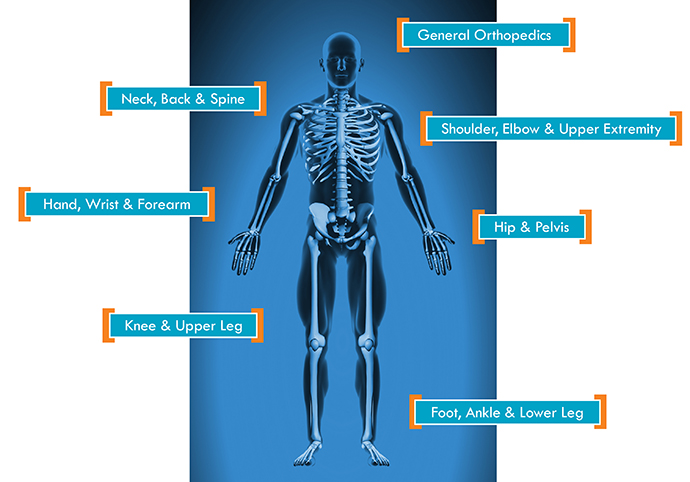General Orthopaedics
An orthopaedic surgeon is a physician devoted to the diagnosis, treatment, prevention and rehabilitation of injuries, disorders and diseases of the body's musculoskeletal system. This system includes bones, joints, ligaments, muscles, nerves and tendons.
Some of the conditions and diseases an orthopaedic surgeon treats include:
- Abnormalities of the fingers and toes
- Fractures and dislocations
- Growth abnormalities
- Osteoarthritis
- Osteoporosis
- Rheumatoid arthritis
- Sports or work-related injuries
- Tendon injuries, pulled muscles, bursitis and torn cartilage
- Torn ligaments, sprains and strains
Orthopaedic surgeons perform numerous types of surgeries on patients. Common surgeries include:
- Arthroscopy – a procedure using special cameras and equipment to visualize, diagnose and treat problems inside a joint.
- Fusion – a "welding" process by which bones are fused together with bone grafts and internal devices – such as metal rods – to heal into a single solid bone.
- Internal Fixation – a method to hold the broken pieces of bone in proper position with metal plates, pins or screws while the bone is healing.
- Joint replacement (partial, total and revision) – when an arthritic or damaged joint is removed and replaced with an artificial joint called a prosthesis.
- Osteotomy – the correction of bone deformity by cutting and repositioning the bone.
- Soft Tissue Repair – the mending of soft tissue, such as torn tendons or ligaments.

Request an Appointment


